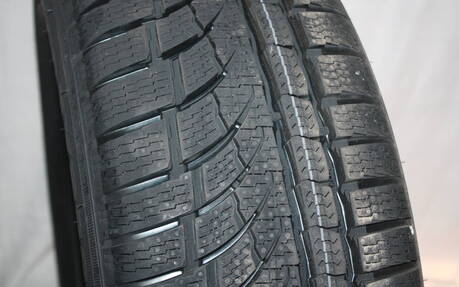What Are All-Weather Tires?
In partnership with Otogo.ca
A new type of tire product called “all-weather” has grown in popularity over the last few years. These tires, which adorn the mountain and snowflake pictogram, are approved for winter but can also be used all year. They have nothing to do with conventional all-season tires.
- Also: Top 10: Best Winter Tires for Cars and Small SUVs, 2021-2022
- Also: All-Wheel Drive vs. Winter Tires: Which One is Best?
Technologies have evolved significantly over the past decade in terms of design and components: rubber, silica, chemical additives, etc.
Who Should Look Into All-Weather Tires?
Who is the target clientele for these all-weather tires? Mainly pickup trucks and commercial vans, fleets of rental vehicles, cars that do very little mileage per year or that do not leave large urban centres and vehicles at the end of their lease. Cars who spend a good part of the winter in Florida would also be good candidates.
While all-weather tires save time and money on the assembly and disassembly of the wheels – one must always rotate the tires to keep the wear even.
Just like summer tires, all-weather tires show the UTQG (Uniform Tire Quality Grading) rating on the sidewall. This provides information on certain characteristics, namely treadwear, traction and heat resistance. If you know how to interpret and compare them, these ratings can prove to be very useful.
Any Recommendations?
All-weather tires do not provide the same traction on ice and snow as a good winter tire. However, some of them can perform as well if not better than entry-level winter tires.
When looking at various tire rankings, we find that the Nokian WR stands out, surpassing many inexpensive winter tires in terms of performance. It provides a smooth ride, great handling and longevity in the winter, as well as interesting summer capabilities. However, this tire is expensive and its availability is limited.
The Michelin Cross Climate and Toyo Celsius tires are other popular all-weather tire models. That being said, forward-thinking drivers should carefully assess their needs before purchasing all-weather tires.
